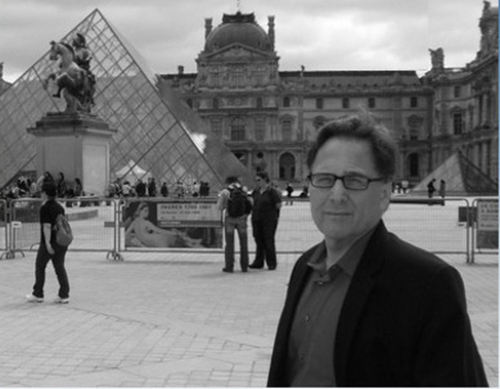
Go Forth is a series curated by Nicolle Elizabeth that offers a look into the publishing industry and contemporary small-press literature. See more of the series.
If you ask John Domini three or four open, simple questions, he’ll respond with a profound brashness I respect a lot. In May 2014, Dzanc will release The Sea-God’s Herb—essays, reviews and selected non-fiction. The book spans his career, from work in The New York Times to elsewhere. You’ll probably want to read it.
—Nicolle Elizabeth
NICOLLE ELIZABETH: John, you’re a creative writer as well as a literary critic. What moves you to write criticism?
JOHN DOMINI: Y’know, there are days I wish someone would tell me. Days like the one when I found myself sitting on the concrete basement floor, flipping through files of old storage technology, yellowing clips of newsprint, struggling to cull a few for this “Selected Essays & Criticism.” I mean, the question does come to mind: why on earth….? I have only two hands and one brain; I have a kid and a job and stories in mind that, whatever their eventual worth, deserve to be seen through to conclusion. It’s a conundrum, and it leads off the Preface for my Sea-God.
A couple of less-than-noble answers have occurred to me. Naturally, the reviews and the longer meditations added some wee bit to the Glory of Me; they fed the vanity that, let’s be honest, helps drive us to this vocation. Sure, I like seeing my name in print—and I loved it when one of my essays, years back, brought in a complimentary letter from Susan Sontag. But any honest critic also has to admit that reviewing only gets you so far. Even Sontag turned to book-length essays, and to novels, to solidify her reputation. Even a busy critic like Edmund Wilson, like John Leonard, now often requires a footnote on his name. Oh, and speaking of guys like that, they embody the discredited notion that a critic should earn a living. The work, once upon a time, earned a decent dollar, and not just in a few New York places.A handful of this book’s pieces paid enough to make a difference, that month, and I’d be remiss if I didn’t mention that as a motive.
NE: All writers—though we probably are who we are—hope that we’ll continue to evolve. Do you look back at work you have previously published and think, why on earth? What would you say to writers who have a sense they just haven’t found their true voice yet?
JD: The emptiness of such palaver sets a challenge when...
You have reached your article limit
Sign up for a digital subscription and continue reading all new issues, plus our entire archives, for just $1.50/month.
Already a subscriber? Sign in




